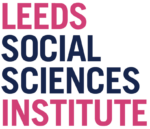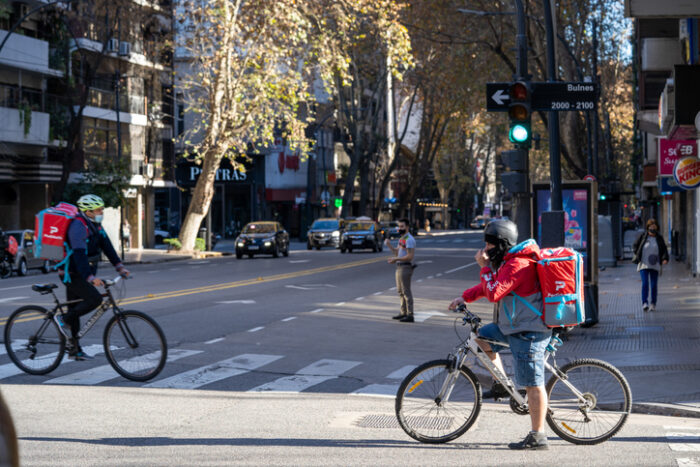#IWD2024 What are the social scientists at the University of Leeds doing to support women around the world?


International Women’s Day (IWD) on 8 March 2024 has provided the opportunity for us to reflect on some of the research that has been supported by the Leeds Social Sciences Institute (LSSI) that directly affects the lives of women around the world.
One of the key messages from LSSI is to advocate for the fundamental importance of social sciences to identify, understand and respond to contemporary global challenges, which are complex, multifaceted and interconnected. Our work in bringing together interdisciplinary researchers, encouraging collaborative and co-produced research and improving the skills and capacity of the research community at the University of Leeds supports the University’s commitment to equality, diversity and inclusion (EDI), and the EDI Framework Strategy.
The theme for IWD this year is ‘Inspire Inclusion’. We hope that the following LSSI-funded research projects inspire you, our colleagues, to continue to work towards an equitable society for everyone.
Making women visible in the design of open spaces
Dr May Newisar, Lecturer in Architecture and Urbanism in the School of Civil Engineering
The project ‘Women’s perception of safety in public open spaces’ is connecting local communities and local authority decision makers to work together to ensure that women and girls are safe.
Dr Newisar ran 2 workshops in Leeds as part of the ESRC Festival of Social Science to include and empower local women. The workshops looked at how women can shape the areas they are living, working, and socialising in – to help positively develop these areas with their input.
May's ongoing project is centred on amplifying women's perspectives and input in policy-making processes. Through various surveys and research endeavours, efforts are underway to bridge communities and better comprehend women's needs and requirements. These endeavours are aimed at contributing to the supplementary planning document on community safety, which is being prepared for submission to the Leeds City Council. Additionally, May is in the process of seeking additional funding to broaden the scope of this research initiative, with the goal of fostering inclusivity and enriching the quality of life within the community.
Bodymapping and embodied storytelling
Dr Sahla Aroussi, Associate Professor Global Security Challenges in the School of Politics and International Studies and Deputy Director, Leeds Social Sciences Institute
Sahla is a feminist interested in questions related to gender, violence and security. Her research examines topics including violence against women, and the project named ‘Gender resistance to violent extremism in Kenya’ is discussed in this case study video. The project looked at how men and women from local communities perceive, experience and resist violent extremism in their everyday lives. By deploying body mapping as a method, which uses the human body as a research site and engages emotions and bodily knowledge and experiences – it encourages participants to look at the strength within themselves and therefore empowers them. Through drawing and painting, the participants can transcend linguistic, educational, social and other barriers to express ideas and perspective that they wouldn’t be able to express in words.
Experiences of women platform delivery workers in Dehli, India and Buenos Aires
Dr Asiya Islam, Lecturer in Work and Employment Relations at Leeds University Business School
Dr Jésica Lorena Pla, Professor in Sociology, Universidad de Buenos Aires
Silvana Galeano Alfonso, Doctoral candidate in Sociology, Universidad de Buenos Aires
Asiya is a Lecturer in Work and Employment Relations and her research areas are gender, class, youth, service work, digital technology and emerging economics. In a recent collaboration between the Universities of Buenos Aires and the University of Leeds, Dr Asiya secured £6k of pump-prime funding which was used to pilot a project looking at the experiences of women in platform delivery work (food delivery and courier delivery) in Delhi, India and Buenos Aires, Argentina. This project makes an important contribution to the emerging scholarship on platform and gig work, particularly by offering underrepresented perspectives of women workers and from the Global South. It highlights how social inequalities, particularly gender and class inequalities, are shaping the experience of digital platform work.
Importantly, the project has successfully developed unique South-South comparative study in the field of digital futures of work. The cross-disciplinary team of researchers is now disseminating findings from the project through conference presentations and paper submissions, as well as identifying potential sources of funding to expand upon this work.
Social and cultural causes of maternal mortality in East Africa
Professor Shane Doyle, Professor of African History in the School of History
Shane’s research seeks to understand the cultural reasons why women in East Africa are at such high risk of death from maternity causes. In 2023, UNICEF stated the lifetime risk of women dying from maternity-associated concerns was 268 times higher than in Western Europe.
By gathering people with different expertise, in their own region, they shared experiences, built connections and discussed complex issues. As a result of these research groups, it was recommended that all health information be presented in the region’s indigenous language. Most printed information is in English or the official Kenyan language, Kiswahili, whereas including the more common first language of Luo would make it more accessible locally. They also recommended that maternal health policies always be conscious of the social, historical, anthropological and bio-psychosocial connection between illness and health.
You can read the full case study on this project here.
Co-production Research Toolkit
Professor Louise Waite, Professor of Human Geography, School of Geography and Director LSSI
Professor Gehan Selim, Hoffman Wood Professor of Architecture, School of Civil Engineering and Deputy Director LSSI
The LSSI Co-production Research Toolkit looks not only at how rich, impactful research is achieved by working across disciplines, but also how to involve marginalised groups (with intersectional identities, such as gender, race, ethnicity, age) as stakeholders in research from the beginning of projects. By challenging traditional hierarchies of knowledge systems co-production recognises the importance of equal partnerships and collaborations to reframe how knowledge is produced.
Participatory research is a theoretical and methodological tool for engaging different narratives and voices, past and present, and draws upon visual, verbal and creative methodologies to engage different stakeholders through the research process. Approaching co-production and participatory research practice with limited experience in these approaches can be daunting, but also offers a range of opportunities to be imaginative and innovative in your research approach.
The Co-production Research Toolkit, is part of a suite of resources created to enhance co-production and participatory research at The University of Leeds. By sharing these resources, we are using the research methods used by the researchers in the toolkit and are building upon the knowledge of our early career researchers. You can also listen to a podcast by Professor Gehan Selim and Ged Hall from the Research Culture Uncovered series of podcasts, discussing the toolkit.
We hope this look into some of the IWD-related work undertaken at the University of Leeds has inspired you, and that you want to find out more about LSSI and what we do. Please visit our website https://lssi.leeds.ac.uk/.
